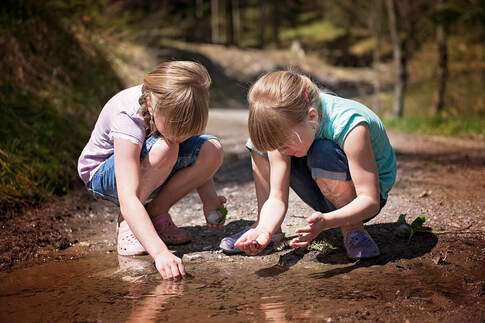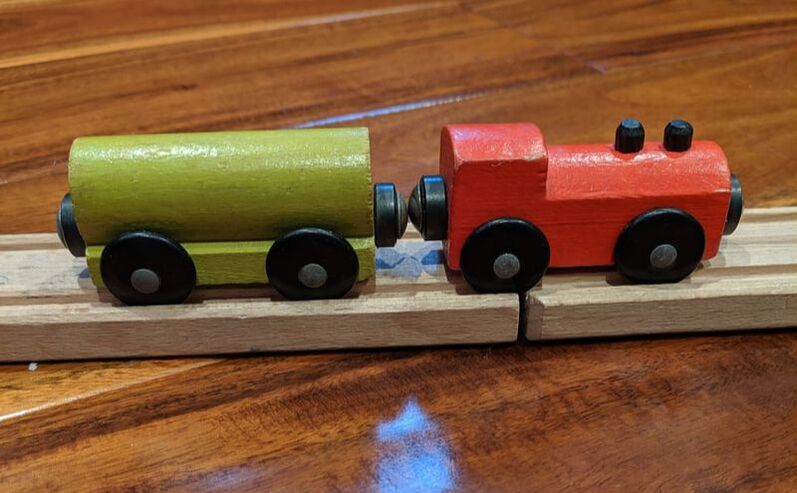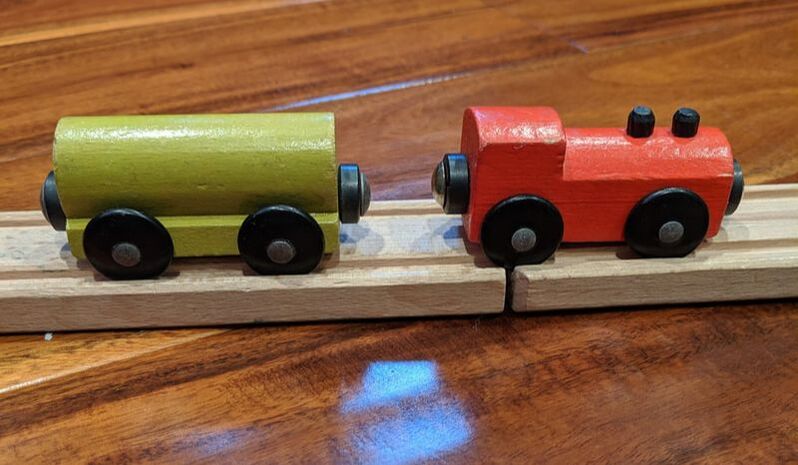|
Are you excited about summer break being right around the corner? I am. (Notice my excessive use of exclamation points.) I love summer. I'm not just talking about the season itself, although I do love that - I'm talking about the long break from school. Summer is time to take a break from school. Summer is not the time to take a break from learning. Summer is the perfect time to learn without the pressure of tests and the responsibility of homework. It's the perfect time to visit museums and parks. These experiences are extremely important because by exploring and experiencing, children lay the groundwork for their classroom experience. Here’s an example. At some point in their science education, your child will learn about the life cycle of a frog. I remember learning about this as a student, but I didn’t have to memorize it as a student. Why? Because there was a ditch in the front yard of the house I grew up in. Every year frogs would lay eggs. Once the tadpoles emerged we would scoop them into buckets and check their progress. It was play. Gloriously messy, sometimes muddy play. But then when I got to science class the life cycle was something I knew. I had watched. I had observed. The teacher had new information that I didn’t already know, but she had a shelf to place new information onto. My existing knowledge allowed my understanding to be deeper and more lasting than the student who had never seen a tadpole. Often our school system becomes adversarial. Students work hard NOT to learn the information the teachers are tasked with the responsibility of forcing the materials into them. This push back doesn’t usually happen until middle and high school, but the mindset begins as early as elementary. We make a critical mistake when we equate school with learning. Why? School does not have a monopoly on learning. It CANNOT have a monopoly on learning. This is NOT to say that students don't learn in school but when we limit learning to school we limit our children’s mindset and limit their growth. Learning should be a lifelong pursuit. Adults calling themselves a life long learner has become popular. Why can't we let kids embrace that too? Oddly enough when I say stuff like this is it is usually the adults who tell me that kids don't want to learn, NOT their kids. This disturbs me. Learning is awesome. It is fun. It is something that the mind embraces and takes pleasure in. The brain releases a dopamine response when a new fact snaps into place. (Imagine that feeling when a puzzle piece clicks into place.) When your brain has an “ah-ha” moment your brain releases pleasure hormones. When kids make a connection between something they learned in school and something they already know, their brain releases a “reward” for their effort. Not interested in "teaching" your children this summer? Afraid that you will get stuck or not know what to say? Here’s an example of the type of learning and teaching I am talking about. Many kids have had the experience of trying to connect toy trains. Sometimes the trains won’t connect. They may get frustrated, but they usually figure out that the key to success is to turn the train around. It works! Cool now they can play. When they get to science class and learn that magnets have a north and south pole and connect it with their memory, their brain rewards them for that connection. Those students who have been trained to recognize the moment a connection happens can gain an even greater response. Training to recognize this is as simple as noting when it happens and cheering. Older students who are interested in Greek Mythology will love making connections about their secular reading and the experience of Paul in the book of Acts. Read Acts 17:16-34 (Paul’s sermon from the Aeropagus.) Those Paul is speaking to believe in and worship the gods we read about in stories. In verses 24-25 Paul makes specific reference to the stories of mythology. “The God who made the world and everything in it is the Lord of heaven and earth and does not live in temples built by human hands. And he is not served by human hands, as if he needed anything.” The Greek gods constantly needed help from heroes who were demi-gods. Without Heracles, Jason, and Theseus the gods would be in desperate straights. Paul is remarking that the one Creator God who is over ALL, not just the wind, seas, seasons, medicine, etc., doesn’t need human heroes to save him. He is omnipotent. When students connect these two things (the Bible and Greek mythology) they get very excited and the discussion is usually a lively one. Even students who say they “hate” learning take pleasure in learning about things that they are interested in. Summer and other breaks from school are the perfect time to leisurely explore their own pursuits. I recommend exposure to a wide range of activities that will eventually coincide with their classroom learning. Some areas are richer in learning opportunities than others. I have been working on my Southeastern Michigan page and hope to add several more places this summer. Check it out and comment with places you would add. There is no way that you will be able to experience everything that your child is going to be learning about, but you can participate in a variety of things that will set them up for future success. Next week I will release our full summer bucket list. We are planning on visiting several places that are recognized by the National Park Service as the Motor Cities National Heritage Area as well as River Raisin, a National Historic Battlefield. (All within an hour or so of our house.) Subscribe using the form below to follow our adventures and learn more about fun activities that will help your child's summer be both fun and constructive. A Note About Video Games: Learning isn’t the only way to receive a dopamine response from the brain. Video games flood the brain with a dopamine response, but rarely are real skills gained and often the cost/benefit ratio is out of proportion. Alarmists love to report that kids are addicted and scare parents with statistics about the dangers of gaming. This sells stories and gets people to click, but it isn’t necessarily true. Video games aren’t all bad and can be a good way for families to have fun together (Wii) or kids to learn about the challenges of running a city (Sim City). Think of it this way - taking the family out for ice cream can be a fun way to bond and have fun. It’s a good thing. Eating ice cream for breakfast, lunch, and dinner is excessive and detrimental to your health.
0 Comments
Leave a Reply. |
"A jack of all trades is a master of none, but oftentimes better than a master of one." Archives
May 2020
Categories
All
|
AdventuresGet in Touch |



 RSS Feed
RSS Feed